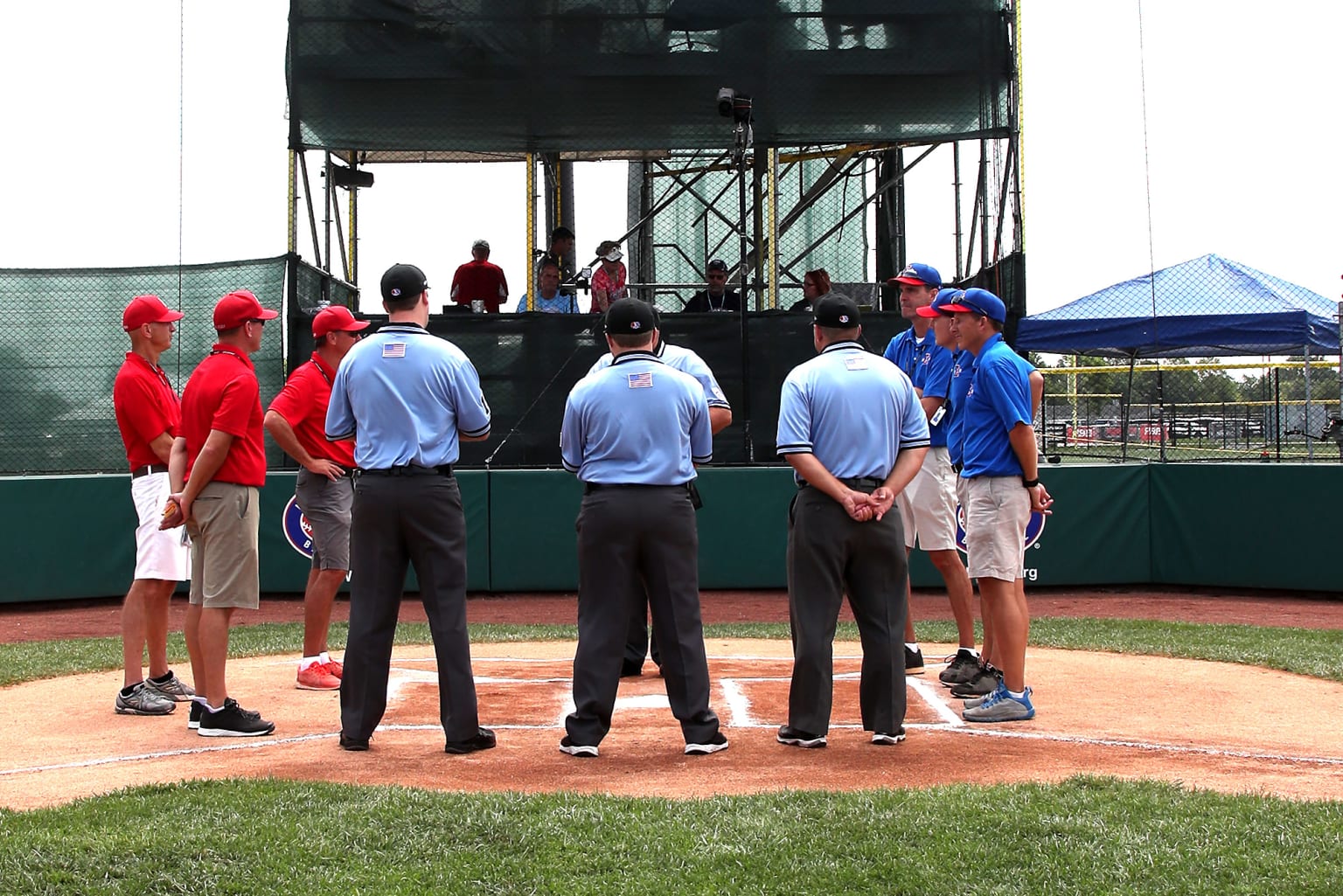Improve Aptitude, Confidence with 7 Pregame To-Do’s

Much of the aptitude associated with umpiring in Little League® comes from your level of performance confidence. Your confidence level can vary from game to game based on many factors. The majority of these factors can be addressed prior to you walking on the field.
To improve your confidence and performance during the game, here is a starting line-up of seven items to check off before putting the ball in play:
Learn What You Can about the Teams for Which You are Umpiring
You don’t need a full-blown scouting report on each team, but it would help to know the league standings and keep in mind what each team may feel is stake competitively. You might also want to know the tendencies of the managers and pitchers so you can mentally prepare for situations such as aggressive base-running or reactions to inside pitches. The pregame conversation with your partner is the proper time discuss such tendencies.
Brush up on Your Rulebook
Read a few rules before the game just so that your mind is engaged on the technical task at hand. With the rulebook open you just might stumble on a nuance you’d never considered before.
Check the Weather
If weather is at all questionable, know in advance that you’ll want to remind both managers to keep their players hustling in and out every half inning and be efficient with their warm-up pitches. Keep in mind the implications for pitch counts so that you can help managers and pitchers make the right decisions based on the possibility of weather delaying or suspending play.
Arrive at the Field Well-rested and Well-fed
Just like the athletes whose safety and fair play are entrusted to you, rest and nutrition are important to good umpiring. You’ll need your senses sharp to make the best calls, and if tempers rise in the dugouts or stands, you don’t want to be so “hangry” that you react inappropriately and escalate matters.
Check Field Conditions
Player safety is paramount. Look for holes, divots, rocks, glass or slippery surfaces. Even if you don’t find anything or know that the field conditions are usually fine at the facilities where you umpire, the very fact that you check lets managers, players, and their parents know that you are diligent about player safety.
Huddle up with Your Partner
Establish a working relationship with the other umpire during your pregame conference. Make sure you agree on positioning when runners are on base, signals and other non-verbal communication, and who has which call in various situations.
Meet with Managers
Make sure there are respectful handshakes. Watch for signs of animosity. Let them know if, when, and how they should approach you with any questions during the game. Be clear with your instruction of ground rules, substitution changes, and checks of the pitch count. Be sure to remember their first names so that when/if a discussion arises, you can relate to them on a personal level.
Additional free resources from Positive Coaching Alliance are available at www.PCADevZone.org.
Submitted by David Jacobson, Positive Coaching Alliance